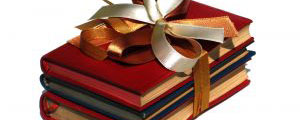
RABISON Shumba is an international speaker with the solid profile as a writer. Traditionally known as a motivational writer, backed by his life–coaching call, he has, however, just demonstrated the diversity of his skill with the publication of his latest book.
Philip Chidavaenzi
Showers of Inspiration (Poems from the Heart) is a collection of poems that betrays his serious motivational leanings with the beauty and hard–hitting blend of creative poetry.
Published this year by Greatness Factory Publishers, this slim volume of verse reflects the extent of thoughtfulness and care that went into its production, in keeping with the spirit of excellence that Shumba often preaches through his motivational literary works and speaking engagements.
The book is broken down into six sections, arranged systematically so that each section carries poems that are drawn from the same themes.
This allows the reader to move seamlessly through the collection and quickly grasp the ideas shared by the poet. There are such diverse themes that there is likely to something for everyone.
The book jacket itself is probably the first attraction that is good enough to lure the potential reader.
What I found very interesting is that unlike most motivational writers, Shumba has a tremendously creative skill as he was able to exploit traditional literary devices used in poetry. Here and there the reader comes across rhyme and poignant imagery. In the poem, Voice, for instance, the poet says: “My voice shall speak once . . ./My voice shall pierce the thick clouds . . ./My voice shall be a weapon . . ./My voice shall be a tool. . .” (pp8).
- Chamisa under fire over US$120K donation
- Mavhunga puts DeMbare into Chibuku quarterfinals
- Pension funds bet on Cabora Bassa oilfields
- Councils defy govt fire tender directive
Keep Reading
In the same poem, Shumba uses such powerful imagery that creates pictures in the reader’s or listener’s mind, envisioning the voice as a “piercing” knife, “a weapon” and “a tool”.
The poet’s passion for Africa is captured in the last segment of the collection under the banner, “Africa, My Home, My Delight”.
Here there are three poems including The Blessed Continent, in which the African begins to speak, re-writing traditional Euro–centric notions that portray his continent as a poor and cursed continent with nothing to offer to the world. The persona says: “I come from a blessed continent/Rich in all respect, blessed with no limits . . .” (pp43).
Chapter 5 of the book, titled “Love and Relationship” brings to the fore the romantic in Shumba, as the poet celebrates the beauty of an African woman, the important role that women are specially endowed to play in a society and challenges in love relationships, among other ideas.
In the poem Education with a Difference, the poet interrogates the nature of education. This is a particularly important piece at a time when they are increasing demands in the country to revisit the education system that has only managed to produce employees rather than entrepreneurs and employers.
He contends that education should be purposeful rather than the mere acquisition of knowledge that is irrelevant to human existence.
Shumba’s poetry collection comes with very serious endorsements that transcend continents, with readers from as far as the United States, Italy, Canada and Namibia endorsing his debut poetry anthology in which he motivates the reader through poetry.
In the foreword to the book, celebrated performance poet, Chirikure Chirikure, writes that “reading through the poems, one feels a constant echo of the African voice, of the ancient traditional African rhythms. Shumba manages to achieve this through his loyalty to all things surrounding him” (pp1).
He also highlights that the poems are universal in their outlook, and this is something that creates appeal to readers across boundaries as they easily identify with the poems.
Shumba has to be commended for producing such a piece of work, which will probably mark the beginning of a new literary traditional as inspirational writings find a niche in poetry. Till next time, keep reading!
lFeedback: [email protected]











